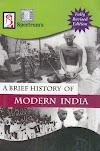Disqualification of MPs and Anti-defection law
"Good governance depends on the ability to take responsibility by both administration as well as people"
Disqualification of Members of Parliament
- Article 102 deals with the disqualification of MPs (Article 191 deals with the disqualification of MLAs and MLCs).
- Article 102 (1)
- MPs were disqualified by the President on the recommendation of ECI.
- Grounds -
- Holding office of profit
- Unsolved mind
- Undischarged insolvent
- Lost citizenship
- Any other law
- Article 102 (2)
- MPs were disqualified by the Presiding officer (Speaker of Lok Sabha or Chairman of Rajya Sabha)
- Ground -
- Anti-Defection law
Disqualification of MPs - Under Article 102, provisions have been given for the disqualification of MPs.
Under Article 102 (1), a person shall be disqualified for being chosen as or for being MP of Lok Sabha or Rajya Sabha by the president on the recommendation of Election Commission of India.
Under Article 102 (1)(a), a person shall be disqualified for being chosen or for being MP of Lok Sabha or Rajya Sabha if he holds office of profit under the state except in the case of offices which have been exempted by the parliament from the office of profit.
Under Article 102 (1)(b), he shall be disqualified if he is of unsound mind and declared so by the competent court.
Under Article 102 (1)(c), An MP is disqualified if he is an undischarged insolvent.
Under Article 102 (1)(d), he is disqualified if he is not an Indian citizen.
Under Article 102 (1)(e), he may be disqualified under any other law made by the parliament (like Representation of people act 1951).
In all these cases, the President disqualified an MP on the recommendation of Election Commission of India and this recommendation is binding upon the president.
Article 102 (2) - A person shall be disqualified from being MP as per the provisions of the Anti-defection law by the presiding officer of the respective house.
Anti-defection law (Schedule 10) -
The parliament made Anti-defection law in 1985 and then by 52nd Constitutional Amendment Act 1985 gave it a constitutional status by putting its provisions in 10th Schedule.
Anti-defection law prohibits political defection among the members of the parliament and state legislature for personal gains by providing for their disqualification under the following 4 conditions -
- In case of Independent member - If an independent member of the legislature joins any political party after winning the election then he shall be disqualified from the legislature.
- In case of Nominated member - If a nominated member of the legislature wants to joins any political party, then he must join within 6 months of his nomination. If he joins any political party 6 months after becoming the member of the house, then he shall be disqualified from the house.
- In case of Political Party member - If a legislative party member voluntarily resigns from his party and joins any other political party, then he shall be disqualified.
- However if the political party removes him from his party then he shall not be disqualified.
- In case of whip issued - If a political party member disobeyed the whip of his party by voting against the whip of the party or by abstaining from voting and his action is not condomed by his political party within 15 days, then he shall be disqualified from the house.
- However if the member gives a letter mentioning the reason for his disapproval and the party pardons him for disobeying the whip, then he shall not be disqualified.
This law is meant to curb horse trading. Also, it is perceived that the people vote not for the member/person but for the ideologies of the party.
However, this law appears to suppress the freedom of speech and expression available to the legislature but it also weakens democracy since the legislature may not be able to truly becomes the voice of the people of the constituency/state under the pressure from his political party.
However, Supreme Court held that the whip issued by the political party to its legislative members shall be binding only under the following situations -
- Passage of vote of thanks to presidential/governor's address
- Passage of confidence/non-confidence motion
- Passage of money bill
Since, the defeat of these bills lead to the fall of the government which also weakens the democracy.
In all other cases, he is free to vote the way he wants.
Exception of Anti-defection law -
- Presiding officer → leaves party → then this does not amount to disqualification under Anti-defection law. but if he again wants to rejoin his original party or any other party → then he shall be disqualified.
If the Speaker or Deputy Speaker of the Lok Sabha or Assembly of the State or the Chairman or Deputy Chairman of the Rajya Sabha or State Legislative Council resigns from his political party after being elected to that office but does not join any other political party or rejoins the same political party from which he originally resides, then he shall not be disqualified under the Anti-defection law.
If not less than two-third of the members of the legislature party breakaway and merges with any other political party, then they shall not be disqualified under Anti-defection law.
Note - The ground of defection (under Anti-defection law) is checked by the presiding officer but the ground of defection of the presiding officer is checked by a member chosen by the house for the same.
Previous Article - The Parliament
Next Article - Types of bills
Notes on other subjects
Optional Subject
Note - This is my Vision IAS Notes (Vision IAS Class Notes) and Ashutosh Pandey Sir's Public Administration Class notes. I've also added some of the information on my own.
Hope! It will help you to achieve your dream of getting selected in Civil Services Examination 👍





2 Comments
Please correct that ARTICLE 102(2) is for disqualified from being MP as per the provisions of the Anti-defection law by the presiding officer of the respective house, not 101(2)
ReplyDeleteThanks 😊
DeleteIt's just a typing mistake. I've made the desired correction.